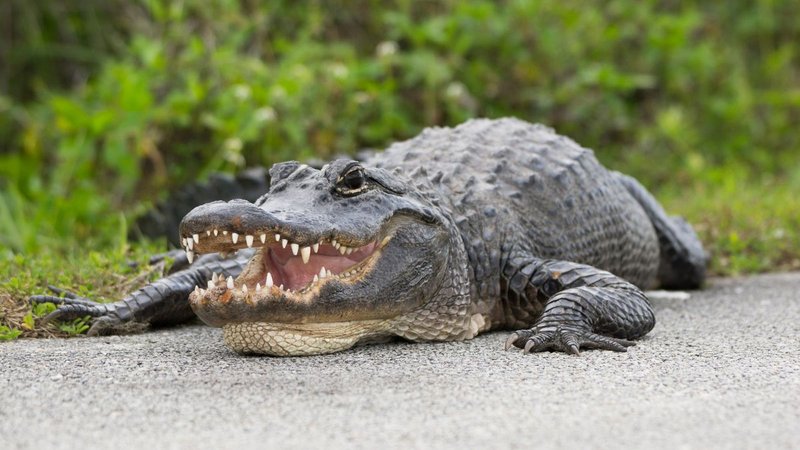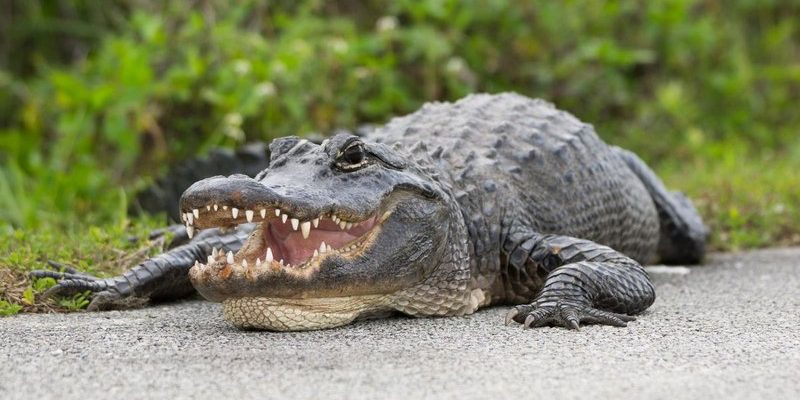
So, can the American alligator actually be dangerous? If you’re venturing into their territory, it’s a valid concern. American alligators are remarkable for their size, strength, and formidable jaws. But understanding their behavior, habitat, and the conditions under which they become dangerous will give you a clearer picture of how to stay safe while enjoying nature. Let’s dive deeper into what you need to know about these incredible reptiles.
Understanding American Alligator Behavior
American alligators are primarily solitary creatures. They tend to avoid humans and prefer to stick to their territories. But here’s the thing: when they feel threatened or are protecting their young, they can become aggressive. They’re territorial and have a strong instinct to defend their space, so if you stumble into that territory, it could lead to trouble.
Most interactions between humans and alligators happen when people unknowingly get too close. This might be during activities like swimming, kayaking, or even fishing. Alligators can be surprisingly fast for their size, with bursts of speed reaching up to 20 miles per hour over short distances. So, if you spot one near the water, it’s best to give it plenty of space.
When American Alligators Attack
Although attacks are rare, they can happen. Most incidents occur when a human is either swimming or wading in water where alligators reside. Alligators generally attack if they feel provoked or if they’re hungry and see a potential meal. This doesn’t mean they’ll go after every human, but caution is always wise.
During mating season, which typically occurs in the spring, male alligators can become particularly aggressive as they compete for females. It’s essential to steer clear of alligator nests and young, as mother alligators are fiercely protective. If you see a nest, it’s a good idea to back away slowly and avoid the area.
How To Stay Safe Around Alligators
Staying safe around alligators boils down to common sense and awareness. Here are some tips to keep you out of harm’s way:
- Keep your distance: Always observe alligators from a safe distance, ideally at least 30 feet away. This distance helps reduce the risk of startling them.
- Avoid swimming in known areas: If you’re near alligator habitats, it’s best to avoid swimming altogether, especially in murky waters where you can’t see what’s below.
- Be cautious at dawn and dusk: Alligators are more active during these times, so keep an eye out if you’re exploring during these hours.
- Don’t feed alligators: Feeding them can encourage them to lose their natural fear of humans, leading to more dangerous encounters.
Taking these precautions can help you enjoy the beauty of Florida’s waterways without risking an encounter with an alligator.
Myths and Misunderstandings
There are a lot of myths surrounding alligators that can contribute to unnecessary fear. One common misconception is that alligators are out to get humans. In reality, they tend to avoid us and only attack if they feel threatened or cornered.
Another myth is that they are mindless killing machines, but that couldn’t be further from the truth. Alligators are strategic hunters and will generally go after prey they can easily overpower. This includes fish, birds, and even small mammals. Understanding these creatures helps to demystify their behavior and fosters a healthier respect for their role in the ecosystem.
Conservation and Your Role
American alligators play a crucial role in their ecosystems, helping maintain the balance of their habitats. They help control fish populations and their nesting sites create habitats for various other species. As such, conservation efforts are vital for their survival, especially as they face habitat loss due to human activities.
If you’re in an area where alligators are present, support local conservation efforts and learn more about how to coexist with these creatures. Taking part in educational programs or community clean-up events can contribute to protecting their habitats and ensuring these magnificent reptiles continue to thrive.
A Final Thought on Living With Alligators
Living near American alligators can be a unique experience, but it’s important to approach it with caution and respect. While they can be dangerous under certain circumstances, most encounters can be avoided with a few sensible precautions. Just like you wouldn’t approach a moose or a bear too closely, the same logic applies to alligators.
So, the next time you find yourself near an alligator habitat, remember to enjoy watching these incredible reptiles from a distance. Respect their space, and you’ll be rewarded with an unforgettable experience in nature—without the danger.

